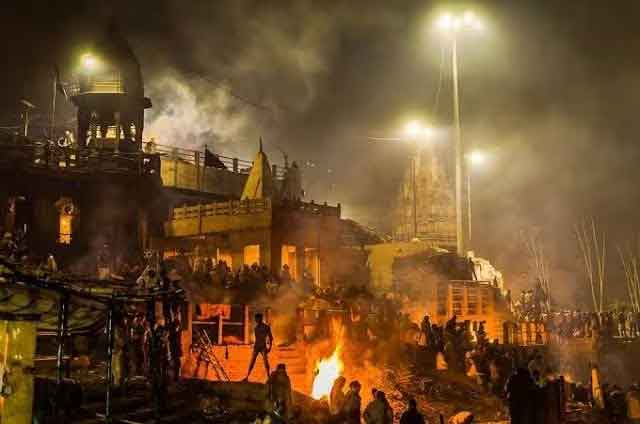Industries are dynamic entities that can experience growth at varying rates, depending on a host of factors such as geographical location and the demographics of their target audience. These factors are particularly crucial in determining demand for goods and services and shaping the competitive landscape. The funeral management industry is a fascinating case study of how regional characteristics, such as population density, age distribution, and cultural preferences, can influence industry development. With the emergence of funeral homes in India, there are evident cross sections coexisting with apparent differences that offer a unique perspective on this global industry’s growth and evolution. In an exclusive interaction, Rishabh Jalan, CEO & Co-founder of Last Journey funeral services, shares his insights on the growth and development of the funeral management industry in India.
Q1. Can you share with us some insights on the growth and development of the funeral management industry in India over the years?
The essence of carrying out last rites of the deceased with utmost dignity and regard has remained the same for centuries but the practices have certainly changed. These changes can be observed more in the tier-1 and tier-2 cities, given the pace of life. Therefore, the funeral management industry has indeed observed growth but in a non-linear manner. Technological advancements have also played a significant role in the growth of the funeral management industry in India. Many funeral service providers now offer online booking facilities, allowing people to arrange funerals from the comfort of their homes. They also offer virtual memorials, which allow people to pay their respects remotely.
Q2. How has the perception of death and the need for funeral services changed in India post pandemic?
The pandemic served as a wake up call to not only the health and medical industry but also the death care industry; it became evident that a majority of cremations and burial grounds are in urgent need of infrastructural upgradations and stringent regulations must be put in place to avoid exploitations of mourning families in the hands of local vendor or priests.
However, the pandemic brought about significant changes in people’s perceptions about the relevance and importance of organized funeral services in India. While some of these changes may be temporary, others may have a lasting impact on the way people approach funeral services in the future.

Q3. What are some of the unique challenges that you face while operating a funeral management company in India?
India is a diverse country with a variety of cultural and religious practices, and funeral customs vary greatly across different regions and communities. This was an initial challenge for us but even today we are extremely cautious of adhering to the cultural and religious practices of the deceased person’s family.
Another challenge that we faced was the lack of standardized procedures and regulations owing to which we came up with a VMS (Vendor Management System) which ensured that no matter where anyone is availing our services, they get uniform quality services and uniform prices.
A persistent challenge however remains making people aware of organized funeral services and building a trust factor with the masses, especially in non-metro markets as well as among the orthodox population. We are trying to sensitize them about the vulnerability they are exposed to when opting for unorganized services that have no accountability.
Q4. What are some of the key trends that you have observed in the Indian funeral management industry, and how do you anticipate these trends to evolve in the future?
As more and more families are moving away from traditional joint family setups, there is a growing need for professional funeral management services that can handle the entire process. Another trend is the adoption of technology in funeral services. With the rise of online platforms and mobile apps, funeral homes are offering digital services to help families plan and manage funerals more efficiently.
In addition, there is an increased emphasis on eco-friendly funeral practices in India. With rising concerns over climate change and environmental degradation, more people are opting for green funeral services that reduce the environmental impact of traditional funeral practices. Looking ahead, we can expect the funeral management industry in India to continue to evolve and adapt to changing social, economic, and technological trends.
Q5. Before we talk about the parallels, shed some light on the parallels that the funeral management industry in India and in the west have in common.
Rephrase this and make it sound professional: I believe that the rationale of the professional funeral management industry both in the West and in India is based on the fundamental thought of providing a sense of comfort and solace to grieving families.
While the rituals and business models employed by funeral homes may differ across cultures, the fundamental objective of assisting grieving families remains the same. When it comes to repatriation services; this particular function of a dedicated funeral home is identical regardless of where the industry is situated.
Furthermore, with international funeral associations giving validation to growing funeral homes in sunrise countries; it will surely give an impetus and provide a level playing field in the global stage for all players.
Q6. How are the growth tangents of organized funeral management companies different in India than that of the west?
The root cause of varied tangents in growth comes from the difference in belief systems present across their respective domestic markets. In the USA for example, burial of the deceased is the most common practice; whereas in India it is wooden pyre cremation. It is obvious that the cost of carrying out both the procedures vary drastically, and one also must consider the purchasing power parity between people of these two economies. Due to burial being the general last rites practice, funeral homes look at land acquisition, coffin preparation, and other customs which are entirely different from that done in India, where last rites practices are layered with religious customs each different in different religion and caste.
Moreover, it must also be taken into account that funeral homes as an organized business model has been prevalent in the west since centuries; whereas in India until recently, the funeral arrangements were either done by local vendors or usually the family members. Private funeral firms are young in the economy and currently face the primary challenge of spreading awareness about the need and availability of such services. I say need because it safeguards them from being exploited by unorganized funeral service vendors, quoting obnoxious prices for services at their will.
Read More: Mumbai-Ahmedabad Bullet Train: IG Drones Bagged Contract For Monitoring
Despite great challenges, startups in this sector are making a mark and creating a viable ecosystem which has served many. In times to come Indian funeral and overall deathcare industry will thrive and cause a behavioral shift among the masses.



1 Comment
Pingback: Comprehensive ICD-11 Training by PMBA USA